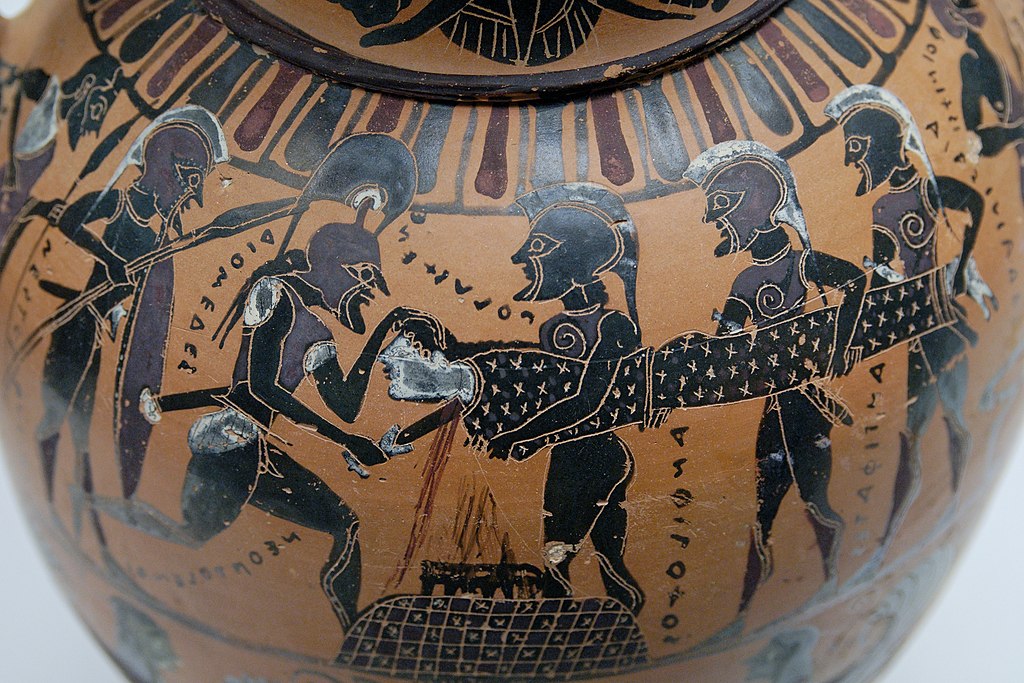Polyksena: The Tragic Tale of Love and Sacrifice in the Trojan War
HELLO AND WELCOME TO MY BLOG!
Hello there, dear readers! Welcome to our historical blog, where we dive into captivating stories from the past. Today, we have an exciting tale to share with you about a remarkable figure from ancient history named Polyksena. So, buckle up and join us as we journey back in time!
Polyksena, also known as Polyxena, was an intriguing character who lived during the time of the Trojan War, a legendary conflict that has inspired countless tales and captured the imagination of people for centuries. She was a princess, the daughter of King Priam and Queen Hecuba of Troy. Now, let's delve into the life and fate of this extraordinary woman.
Polyksena was renowned for her beauty, kindness, and intelligence. Her radiant charm captivated many hearts, including that of Achilles, the great Greek hero. It is said that Achilles fell deeply in love with Polyksena and desired her above all else. This love story, however, took a tragic turn.
In the later stages of the Trojan War, after Achilles had achieved great feats on the battlefield, he tragically met his own demise. Following his death, there were various accounts of what happened next, but one version tells of Achilles' ghost appearing to the Greeks and demanding the sacrifice of Polyksena as a way to appease his spirit.
Despite the heart-wrenching request, Polyksena, being selfless and courageous, agreed to the sacrifice in order to honor Achilles and bring peace to the Greek camp. This act of self-sacrifice demonstrates the depth of her character and her unwavering commitment to the greater good.
As the tale goes, Polyksena willingly accompanied Neoptolemus, the son of Achilles, to an altar where she would meet her tragic fate. Some accounts describe her walking to her death with great dignity and grace, accepting her destiny with incredible strength. This portrayal of Polyksena as a noble and courageous woman has made her an enduring symbol of self-sacrifice and loyalty.
Polyksena's story has captured the imagination of poets, writers, and artists throughout history. It has been the subject of numerous plays, poems, and paintings, each seeking to capture the essence of her character and the emotions surrounding her sacrifice.
In conclusion, dear readers, Polyksena's story is a poignant and timeless reminder of the power of love, sacrifice, and loyalty. Her selfless act in the face of tragedy has left an indelible mark on history and continues to inspire us to this day.
Thank you for joining us on this journey into the past! We hope you found the story of Polyksena as captivating as we did. Remember to stay tuned for more fascinating historical tales in our future blog posts. Until then, take care and keep exploring the wonders of history!
Oh, by the way, Just wanted to remind you that in addition to my history blog, I also have another blog dedicated to the amazing stories and facts from aviation. It's called aviationisamazing.blogspot.com, and it's packed with interesting facts from the past and nowadays. If you're a fan of learning about aviation in a fun and engaging way, then be sure to check it out! Who knows, you might just learn something new, or at least have a good laugh. Let me know in the comments if you're interested in hearing more!


.jpg)





_Photo_Paolo_Villa_FOTO9264.JPG/800px-thumbnail.jpg)
Bonjour mon Cher copain! (灬º‿º灬)♡ I would like to express my warmest thanks to you for this fascinating story
ReplyDelete